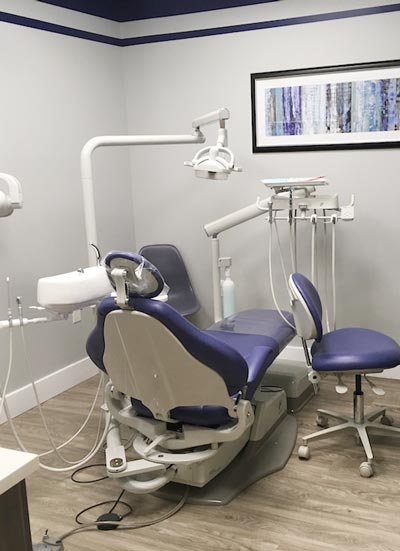
The wisdom teeth are located at the very back of your mouth and are the last ones to break through the gums. These teeth often cause pain and discomfort. In some cases, the pain may resolve independently, but some patients require active home remedies or oral surgery to remove them. Most patients opt to have them removed.
Dr. Isaac Perle has been practicing dentistry for more than 35 years. He has experience with treating wisdom tooth pain as well as a variety of other dental issues. He puts his patients first and will make sure that you understand your condition and treatment options.
Typically, wisdom teeth emerge when an individual is between the ages of 17 and 21 and can be painful. Additionally, most people do not have room in their jaw for their wisdom teeth, which can cause them to come in at an angle or get stuck and not fully emerge.
If a wisdom tooth does not fully emerge, it is impacted. This leaves the gums susceptible to issues including: abscess, gum disease, cysts, or infection.
As wisdom teeth emerge, they may cause minor pain and discomfort. Additionally, it may be harder to floss, allow food to become trapped, or allow bacteria to enter the gums- making you susceptible to gum disease.
If your wisdom teeth emerge in the wrong position or your jaw doesn’t have enough room to accommodate them, you may experience:
If you have wisdom tooth pain, it’s important that you schedule an appointment with Dr. Perle and the team at Cambridge Dental Care as soon as possible. However, there are some things you can do at home in the meantime to manage the pain:
Wisdom teeth are harder, which makes them more susceptible to cavities. When wisdom teeth are coming in, there are a few things you can do to reduce your risk of your gums becoming infected:
Many patients choose to have their wisdom teeth removed to avoid having to deal with the pain or because home remedies are not working to alleviate the pain. Dr. Perle and the team have experience with oral surgery and extractions. However, if the procedure is complicated, you may be referred to an oral surgeon.
When you have them removed, the procedure will begin with injecting a local anesthetic into the affected area. For patients who have dental anxiety, we can offer a sedative to help you sleep through the procedure. Then, pressure will be applied to the tooth to loosen it from the socket.
Small cuts are made around the tooth and, in some cases, the tooth itself will need to be cut into pieces before removal. In most cases, the procedure is over within a few minutes but may last 20 minutes or more.
Typically, gums are only sore for about 3 days following the procedure- after the anesthesia wears off- but may last up to 2 weeks.
If you are experiencing wisdom tooth pain, you may want to consider having them removed as soon as possible. If ignored, you may develop gum disease or issues with your other teeth.
Contact the office by calling us or click here to request an appointment. We are open Monday through Thursday 9:00 AM to 6:00 PM and Friday 9:00 AM to 3:00 PM. Dr. Perle will examine your mouth and determine the best way to treat your wisdom tooth pain. He will discuss your options and make sure you understand them before proceeding with treatment.

